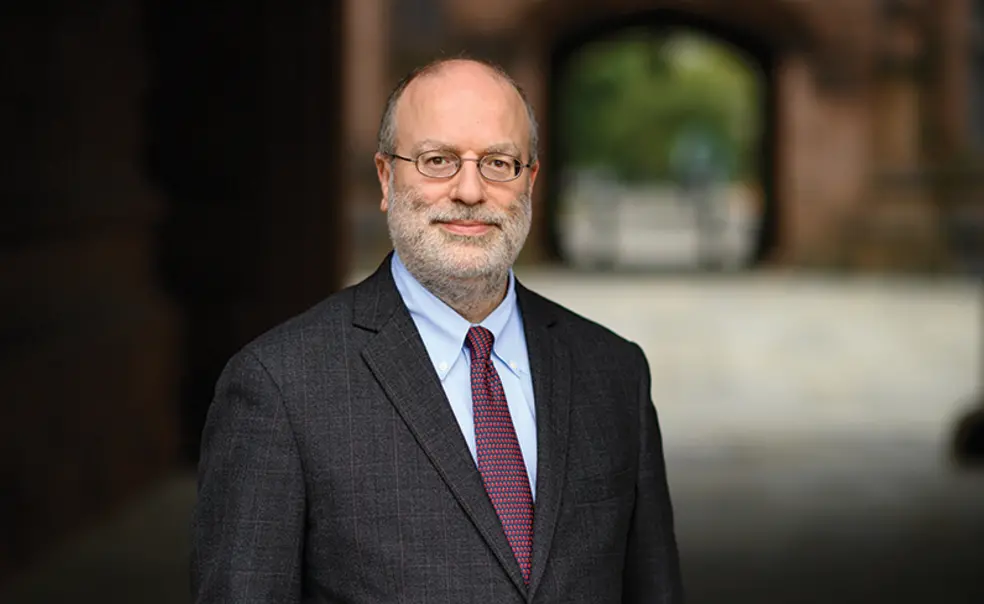Dean Michael Gordin Makes a Case for the Liberal Arts
Gordin is also creating a fresh, less stressful schedule for final exams
The most surprising thing to Michael Gordin about his new role as dean of the college is not the number of meetings on his calendar (a lot), but “the sheer diversity of what goes on [in those meetings], and that they happen back-to-back.”
On a typical day, he might attend a discussion about construction on Hobson College, scheduled to be completed in spring 2027, followed by a meeting about the Honor Code, and then another on financial aid. As leader of the Office of the Dean of the College, Gordin oversees the undergraduate experience from admission to graduation.
“That’s been one of the things that I have found very challenging,” he said in an interview two months after beginning the new position on July 1.
Gordin, a member of Princeton’s faculty since 2003, is only the 13th dean of the college since the post was established in 1909. He succeeds Jill Dolan, who held the role since 2015, and reports to Provost Jennifer Rexford ’91, who led the search committee.
Gordin has been the Rosengarten Professor of Modern and Contemporary History at Princeton since 2013, and he recently served as co-chair of the University’s Middle States Re-Accreditation Steering Committee, which successfully concluded its work earlier this year.
“I felt like he had a very good balance of thinking about the University from an institutional point of view, but also caring about the student experience.”
— Kate Macakanja ’23
One of the first initiatives Gordin took up from his predecessor was to make improvements to the end of semester schedule. Starting this fall, final exams will be scheduled on the same day of the week and time as their corresponding class periods, meaning the exam schedule can be set much earlier. And in the spring, final papers and projects will have staggered due dates, though Dean’s Date will still be the final day that work can be submitted. Gordin called the previous situation “unmanageable” and “extremely stressful and quite compressed.”
Despite his own full plate, Gordin, ever the educator, will teach in the humanities sequence in the spring, and he’s also finishing up a book about what happened to science when the Soviet Union collapsed in 1991 — “the only example in the modern period of an advanced intellectual apparatus atrophying.”
By his own admission, Gordin’s scholarship focuses on “fringe topics,” and his projects usually start “with a random conversation.” He has authored or co-authored nine books on matters such as pseudoscience and the 16 months in 1911-12 when Einstein lived in Prague.
Gordin also “celebrates the weirdness” of his students’ chosen subjects, according to Kelly Minot McCay ’16, who worked with Gordin on her thesis. He “was always happy to let my interests direct my course of study, and then [he would] provide sources or perspective or assistance as needed.”
McCay, who is currently pursuing her Ph.D. at Harvard, said that Gordin is still an influential adviser and has “always treated me with a huge amount of respect as a scholar.”
Kate Macakanja ’23, who also worked with Gordin on her thesis, said she’s confident that he will be a positive presence in the University’s administration. “I felt like he had a very good balance of thinking about the University from an institutional point of view, but also caring about the student experience,” she said.
Gordin sees himself as a proponent for not only students, but also the value of a liberal arts education. “There’s a sense that liberal arts means humanities, and it doesn’t,” he said. “Liberal arts is an attitude towards teaching” that requires learning how to ask and answer difficult questions. He believes strongly that teaching and learning have “to be advocated for and spoken for.”












No responses yet